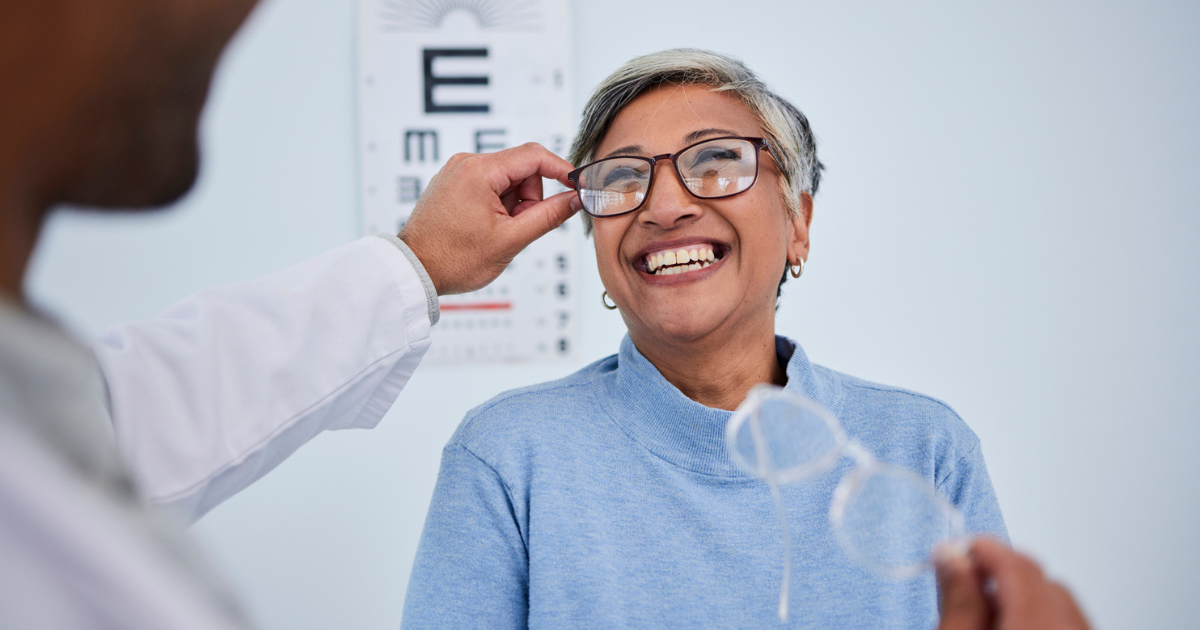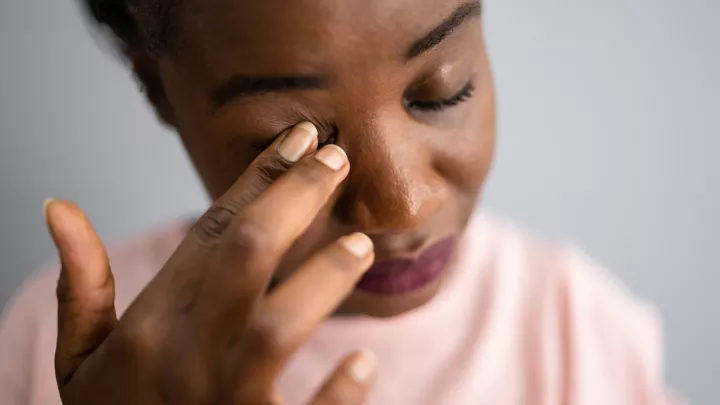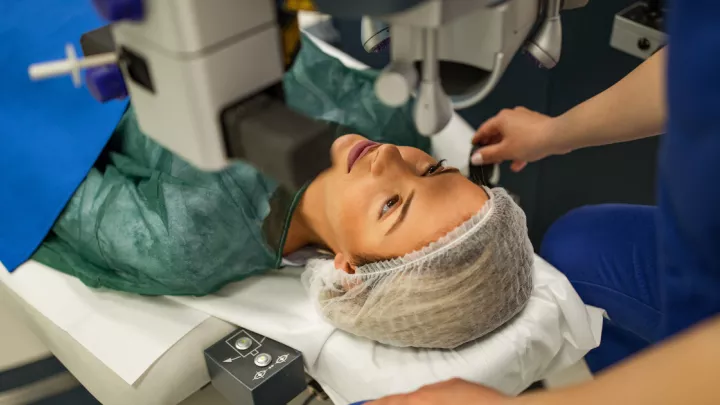10 tips for healthy eyes

While we may take our eyes for granted, they are important to our overall health. Our eyes have a delicate and complex structure, and it’s necessary to care for and protect them from injury to maintain healthy vision now and as we age.
Common eye problems can lead to issues like inflammation, degeneration, swelling and scarring, which can result in vision loss and even blindness. Identifying problems early on can help prevent or reduce our risk.
Regular eye care can have a life-changing impact, and taking steps to support your vision now can make a difference.
- Schedule regular eye exams with an eye doctor.
Everyone needs their eyes and vision checked regularly. Comprehensive dilated eye exams help find problems that may not have warning signs and can provide an opportunity for early treatment and prevention. Your eye doctor may be able to detect certain conditions, such as diabetes or high blood pressure, even before your primary care doctor.
Regular eye exams should be scheduled every two to three years up until age 40, every two years between ages 40 and 60 and every year after age 60 for otherwise healthy eyes.
- Consider if vision corrective surgery may be right for you.
Although vision correction surgery, or refractive surgery, doesn’t change the eyes' normal aging process, it can improve your quality of life through better vision, freedom from glasses or contacts and money savings. The experts at the Truhlsen Eye Institute can help you choose the right vision correction option that suits your needs and lifestyle. While LASIK or SMILE may be the best fit for some people, Contoura® Vision, a reversible solution such as EVO ICL or other surgical options, may be better for your situation.
- Take care of your overall health.
Taking care of your body also helps take care of your eyes. A healthy, balanced diet helps maximize eye health, especially specific foods and vitamins that may help prevent or reduce problems. Maintain a healthy weight, stay hydrated, quit smoking (which can affect blood flow to the delicate eye tissue) and exercise regularly to help support eye health and protect against disease.
- Know your risk factors.
Knowing your family’s medical history is helpful, as certain eye diseases can be inherited. Did a family member have macular degeneration, cataracts, glaucoma or diabetic retinopathy? Share this information with your eye doctor. Risks also include your age, race, smoking history and overall health.
Other risk factors such as diabetes, obesity and high blood pressure can also help you and your doctor take preventive measures against potential eye conditions and diseases.
For example, African Americans are at higher risk of glaucoma, and thus require screening earlier. People with diabetes should get an exam yearly or more frequently as advised by their doctor.
- Give your eyes regular breaks.
Do you spend lots of time on digital devices? Like your body needs walk and stretch breaks, so do your eyes. Reduce eye strain and potential headaches with the 20-20-20 rule. Look away from your screen every 20 minutes, 20 feet away from you for 20 seconds. This will reduce eye fatigue.
- Protect your eyes.
Sun exposure can damage your eyes and even increase the risk of problems like cataracts and age-related macular degeneration. Wear sunglasses that block out 99 to 100% of UV-A and UV-B radiation. Invest in protective eyewear to prevent eye injuries on the job, while playing sports and at home when working on projects.
- Pay attention to vision changes.
If you notice eye changes, don’t wait until your next appointment. Inform your eye doctor if you experience decreased, blurred or double vision, eye pain, draining, dryness, redness, tiny specks that float in your vision (floaters), circles or halos around lights, or light flashes.
- Prevent eye infections with good hand hygiene.
Good hand hygiene can go a long way to help prevent eye infections such as conjunctivitis or pink eye. If you wear contacts, wash your hands thoroughly before putting them in and taking them out. Disinfect the lenses and replace them as directed. Avoid touching your eyes throughout the day to help stop the potential spread of infection.
- Use eye drops if you experience frequent dry eye symptoms.
Dry eye symptoms, such as scratchy irritation or burning sensation, are common. Eye drops can help lubricate your eyes and promote healing. Nonprescription eye drops or artificial tears may be enough for many people with occasional symptoms. However, be careful what you choose, as some “red eye relievers” are decongestants that can worsen dry eye symptoms. Your eye doctor can help determine what may be causing your symptoms and which eye drops may be most appropriate for your situation.
- Maintain updated glasses and contact lens prescriptions.
Take care of your glasses and contacts, replacing lenses as your needs change. As you get older, you may notice that seeing closer becomes challenging. Regular checks will help you keep your vision needs current and open a dialogue about new or alternative options.








